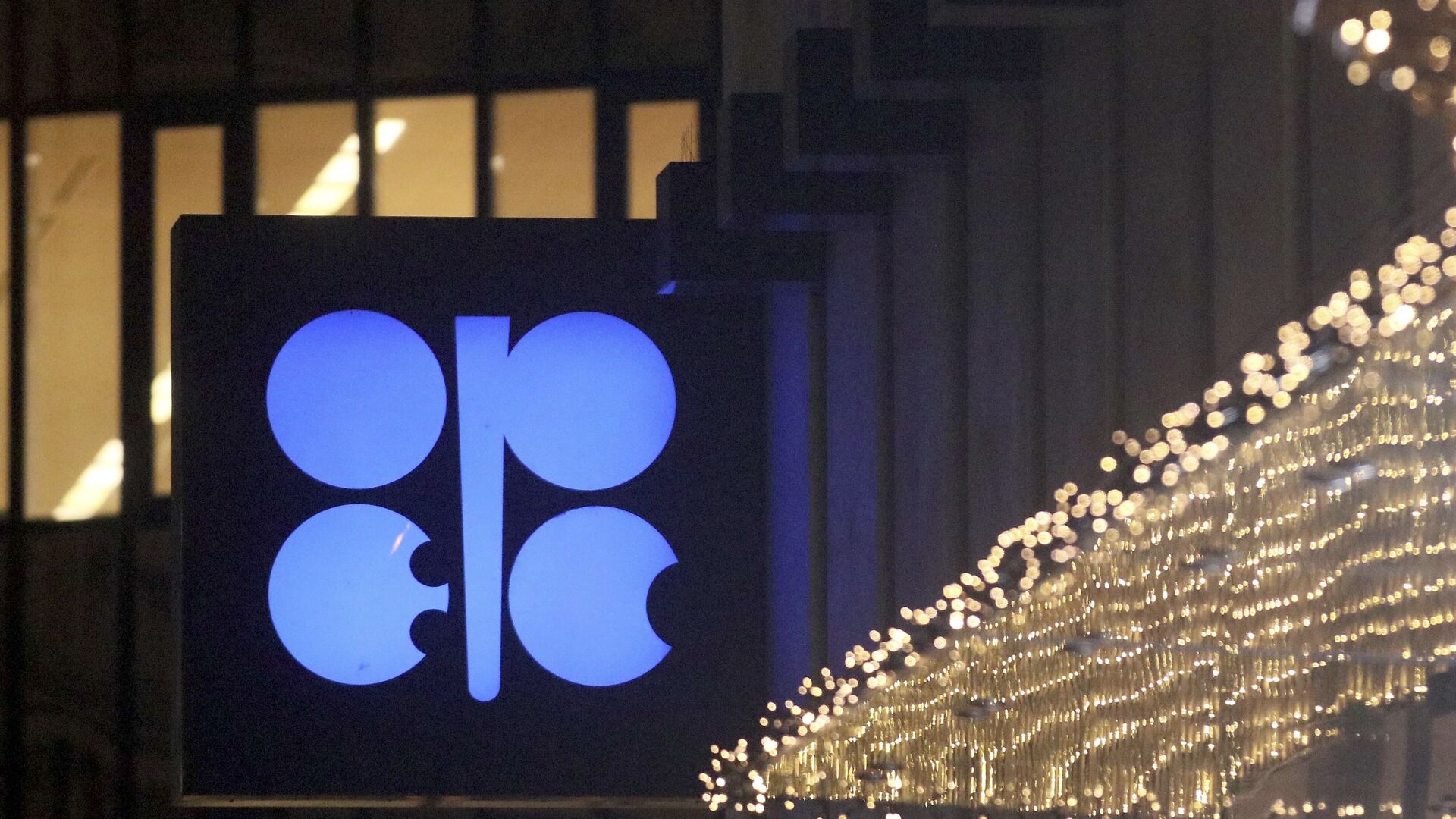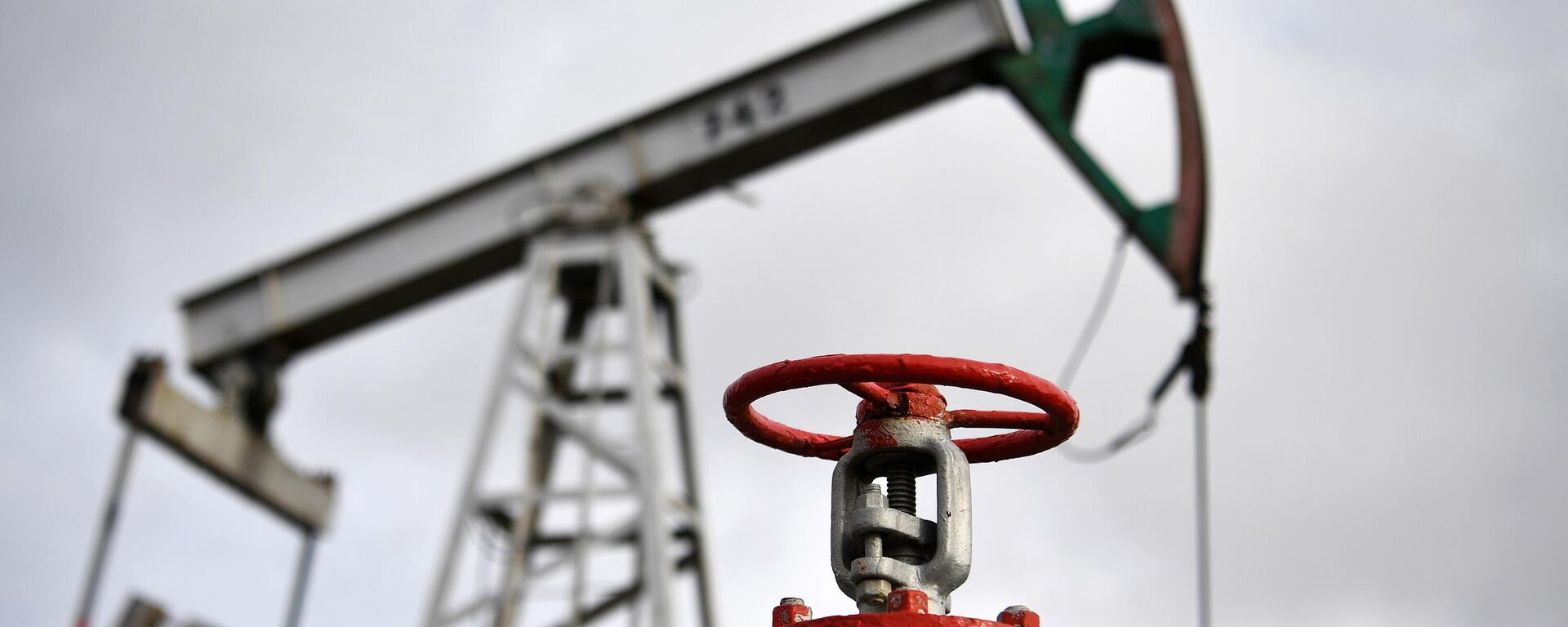https://en.sputniknews.africa/20230604/angola-and-gabon-ministers-leave-opec-meeting-venue-1059708529.html
Angola and Gabon Ministers Leave OPEC+ Meeting Venue
Angola and Gabon Ministers Leave OPEC+ Meeting Venue
Sputnik Africa
The oil ministers of Angola and Gabon left the OPEC + meeting, a Sputnik correspondent reports. The reasons why they left the event are not clear.
2023-06-04T15:10+0200
2023-06-04T15:10+0200
2023-06-04T15:29+0200
opec+
sub-saharan africa
oil
gabon
angola
https://cdn1.img.sputniknews.africa/img/104391/06/1043910602_0:164:3059:1885_1920x0_80_0_0_b85af752965206f8d4a40d26f3999a3b.jpg
Minister of Mineral Resources and Petroleum of Angola, Diamantino Azevedo, as well as the Minister of Oil, Gas, Hydrocarbons and Mines of Gabon, Vincent de Paul Massassa, left the OPEC building, where the meeting of the OPEC + alliance is being held on Sunday, a Sputnik correspondent reports.The reasons for this are unclear. The ministers did not give clarifying comments. At the same time, the head of the Angolan delegation was leaving the organization's secretariat, accompanied by the OPEC Secretary General, who hugged him goodbye.A meeting of the OPEC conference had taken place the day before. As Iranian Deputy Oil Minister Amir Hussein Zamaniniya told reporters, the countries of the organization did not discuss options for reducing oil production there, since this is a topic for the meeting of the entire OPEC+ alliance.Although no changes were initially expected in the terms of the oil deal, British media on Friday, citing sources, said OPEC+ was discussing an additional 1 million barrels per day cut in production, among other options. The agency also later announced the possibility of changing the base production levels from which country-specific reductions are based. According to it, an increase for the UAE and a decrease for a number of African countries that have long been producing below their allowed levels, including Angola and Nigeria, are being discussed.OPEC+ countries are now cutting oil production by 2 million barrels per day until the end of 2023 as part of the deal. At the same time, in April, a number of alliance member countries, including Saudi Arabia, announced that from May they would voluntarily reduce production in excess of quotas – by another 1.16 million barrels per day – also until the end of the year. Russia, in turn, extended the voluntary reduction by 500 million barrels per day, which began in March, for this period.
https://en.sputniknews.africa/20230603/1059696584.html
gabon
angola
Sputnik Africa
feedback@sputniknews.com
+74956456601
MIA „Rossiya Segodnya“
2023
Sputnik Africa
feedback@sputniknews.com
+74956456601
MIA „Rossiya Segodnya“
News
en_EN
Sputnik Africa
feedback@sputniknews.com
+74956456601
MIA „Rossiya Segodnya“
Sputnik Africa
feedback@sputniknews.com
+74956456601
MIA „Rossiya Segodnya“
opec meeting, opec+ africa, opec+ gabon, opec+ angola, africa oil
opec meeting, opec+ africa, opec+ gabon, opec+ angola, africa oil
Angola and Gabon Ministers Leave OPEC+ Meeting Venue
15:10 04.06.2023 (Updated: 15:29 04.06.2023) The Organization of Petroleum Exporting Countries (OPEC) and its allies, led by Russia, pump around 40% of the world's petroleum; they decided in April to cut oil production from May until the end of 2023 to ensure the global energy market's stability.
Minister of Mineral Resources and Petroleum of Angola, Diamantino Azevedo, as well as the Minister of Oil, Gas, Hydrocarbons and Mines of Gabon, Vincent de Paul Massassa, left the OPEC building, where the meeting of the OPEC + alliance is being held on Sunday, a Sputnik correspondent reports.
The reasons for this are unclear. The ministers did not give clarifying comments. At the same time, the head of the Angolan delegation was leaving the organization's secretariat, accompanied by the OPEC Secretary General, who hugged him goodbye.
A meeting of the OPEC conference had taken place the day before. As Iranian Deputy Oil Minister Amir Hussein Zamaniniya told reporters, the countries of the organization did not discuss options for reducing oil production there, since this is a topic for the meeting of the entire OPEC+ alliance.
Although no changes were initially expected in the terms of the oil deal, British media on Friday, citing sources, said OPEC+ was discussing an additional 1 million barrels per day cut in production, among other options. The agency also later announced the possibility of changing the base production levels from which country-specific reductions are based. According to it, an increase for the UAE and a decrease for
a number of African countries that have long been producing below their allowed levels, including Angola and
Nigeria, are being discussed.
OPEC+ countries are now cutting oil production by 2 million barrels per day until the end of 2023 as part of the deal. At the same time, in April, a number of alliance member countries, including Saudi Arabia, announced that from May they would voluntarily reduce production in excess of quotas – by another 1.16 million barrels per day – also until the end of the year. Russia, in turn, extended the voluntary reduction by 500 million barrels per day, which began in March, for this period.


